When it comes to food, Jeonju stands out as a gastronomic paradise in South Korea. Known for its rich culinary heritage and vibrant food culture, Jeonju is the birthplace of some of the nation’s most beloved dishes.
From the mouth-watering bibimbap to the savory flavors of Jeonju-style kongnamul gukbap, this southern city offers a food adventure that promises to satiate every type of palate. Whether you're a food enthusiast, a casual traveler, or someone seeking new culinary experiences, the diverse range of dishes in Jeonju guarantees an unforgettable culinary journey.
In this post I'll cover osme of the must-eat foods in Jeonju, showcasing the unique tastes and traditional recipes that make this city a food lover's haven. We'll explore iconic dishes, including Korean comfort foods, and offer tips on the best places to savor these gastronomic treasures.
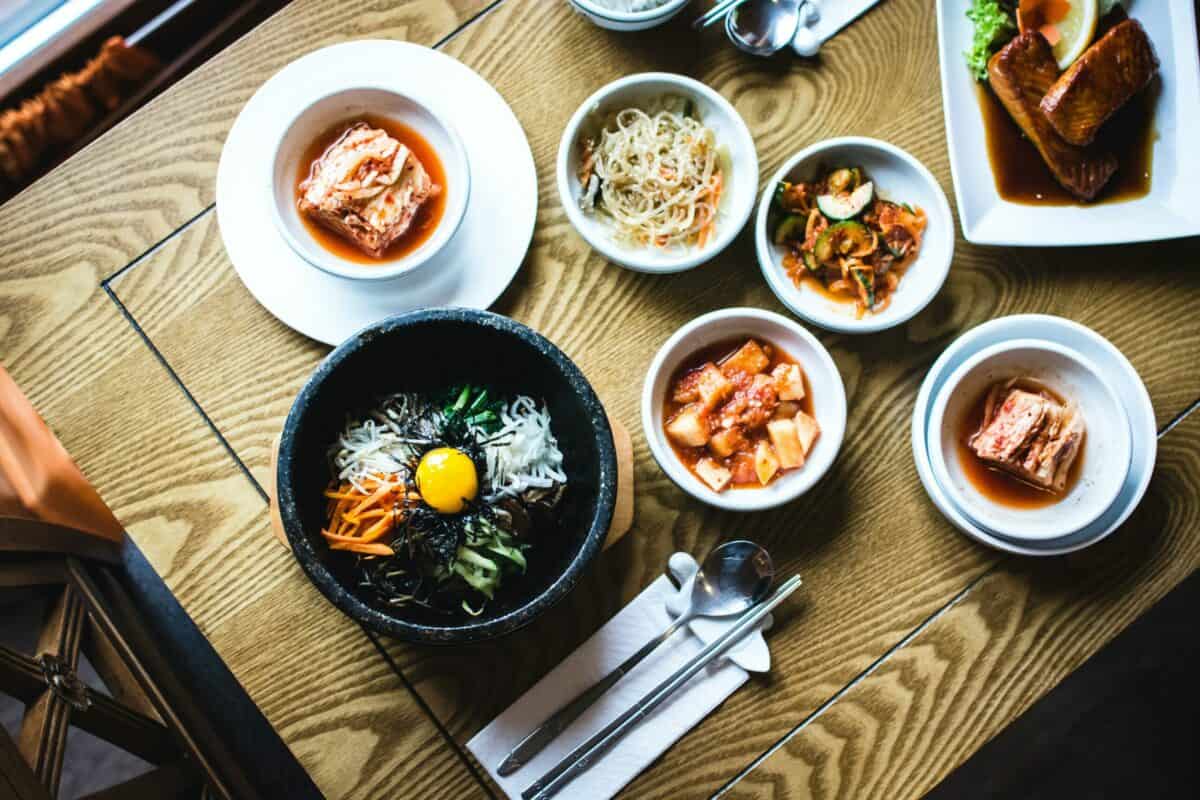
Jump to:
🥢 The Food Capital of South Korea
Known as the "Taste City," Jeonju is an epicenter of culinary excellence in South Korea, celebrated for its diverse and rich gastronomy. This vibrant city, located in the heart of the Honam Plain, has a storied tradition of producing top-quality rice, fresh fish, and salted seafood from the Yellow Sea, as well as an abundance of fresh vegetables and wild greens sourced from the nearby mountains.
Such a unique combination of ingredients has made Jeonju synonymous with high-quality traditional Korean cuisine and Korean street foods. The city's commitment to preserving its rich food culture is evident in the many food and cooking programs offered by universities, high schools, and private institutions around Jeonju.
Both the Creative Culinary Institute of Korea and the Bibimbap Globalization Foundation stand as testaments to Jeonju's innovative partnerships Enhancing its status as a UNESCO City of Gastronomy, Jeonju and its organizations are dedicated to fostering sustainable development in the food industry while promoting cultural diversity through global partnerships.
The city's infrastructure even supports an impressive lineup of food festivals, including the renowned Jeonju Bibimbap Festival and the International Fermented Food Expo, both of which showcase traditional Korean dishes to an international audience. No matter the time of year, anytime there's a food festival, it's one of the most popular things to do in Jeonju.
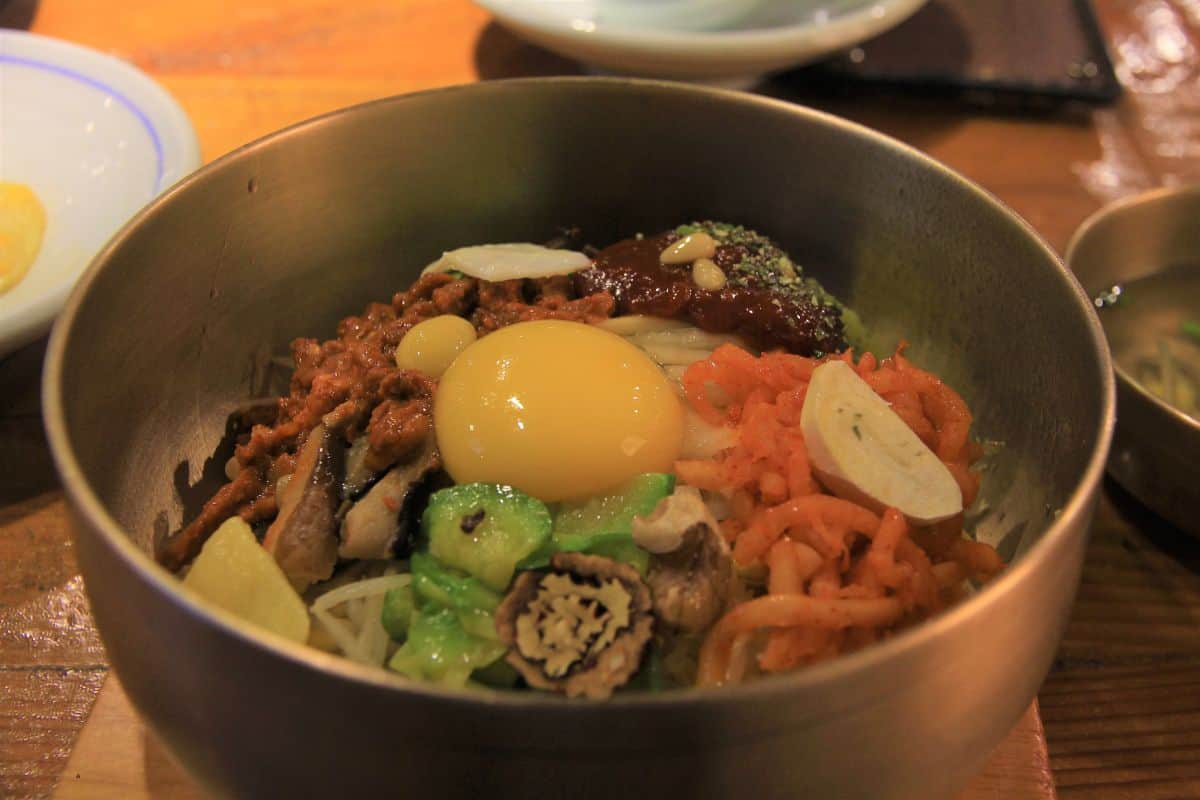
🥘 Korean Dishes Popular in Jeonju
Jeonju Bibimbap
Mentione Jeonju to any local, and bibimbap, the renowned mixed rice bowl, will likely come to their minds. Jeonju's association with bibimbap is so strong that the city hosts an annual Bibimbap Festival every October in Korea, drawing food enthusiasts from around the globe.
Typically, bibimbap features hot white rice topped with various steamed vegetables, kimchi, bean sprouts, and fried egg with sliced or minced meat. This vibrant assortment is mixed with gochujang, a savory red pepper paste, and sometimes a dash of sesame oil, resulting in a delightful fusion of flavors.
For an authentic Jeonju experience, savor bibimbap at Jeonju Hanok Village. This historic locale, celebrated for its serene ambiance and traditional architecture, provides a picturesque backdrop for your meal, and it's hard to find a bad version of it in the city.
Stroll through the village's charming narrow lanes to discover numerous traditional restaurants, each offering its unique take on bibimbap. Whether you're a seasoned food traveler or a curious first-timer, enjoying a bowl of this iconic dish in Jeonju Hanok Village is an unforgettable experience.
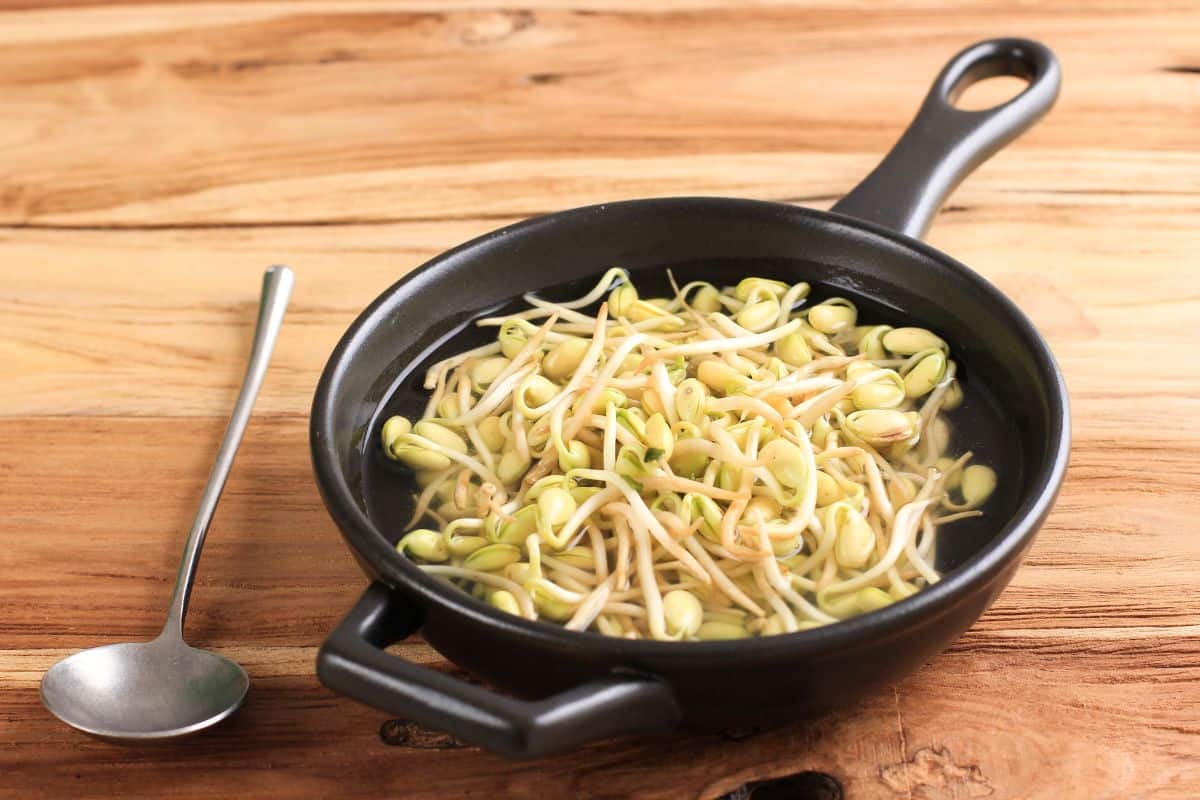
Kongnamul Gukbap
If you're visiting Jeonju, try kongnamul gukbap, or bean sprout soup, a must if you're visiting during winter. This hot and tasty dish features crunchy bean sprouts in a delicious broth with peppers and vegetables. It's a great vegetarian option, without meat or fish.
Underneath the sprouts and broth, you'll find rice, making it a hearty meal for any time of the day. It's also affordable and popular among locals. As you explore Jeonju, you'll find many places serving this soup, so don't miss out on this essential part of the city's food culture, especially if visiting Korea in the winter.
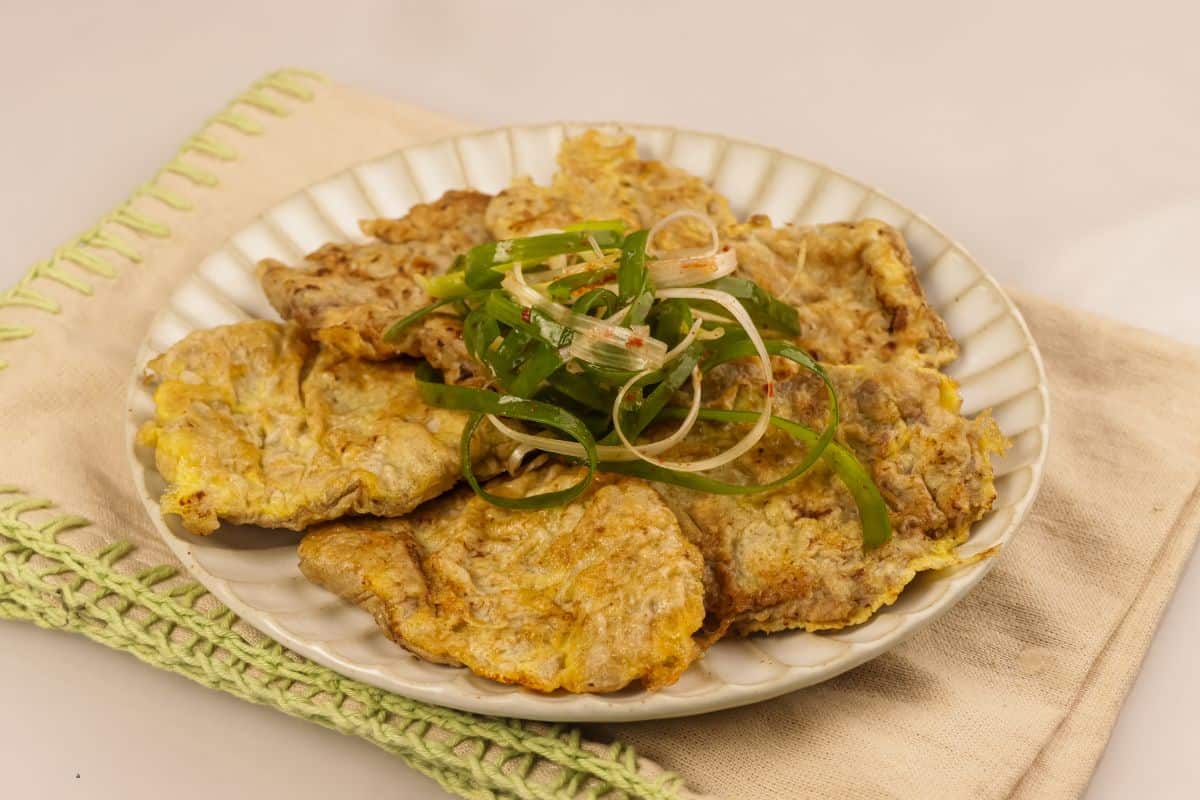
Mayak Yukjeon
If you're in Jeonju and need a quick, satisfying bite, mayak yukjeon are the best - affordable and filling, these tasty meat pancakes are perfect for a little Korean snack on the go.
Made from sliced beef dipped in a light batter and fried until crispy, mayak yukjeon offers a delightful crunch with each bite. Usually enjoyed during festivals like Lunar New Year and Chuseok, you can find them year-round from various street vendors in Jeonju.
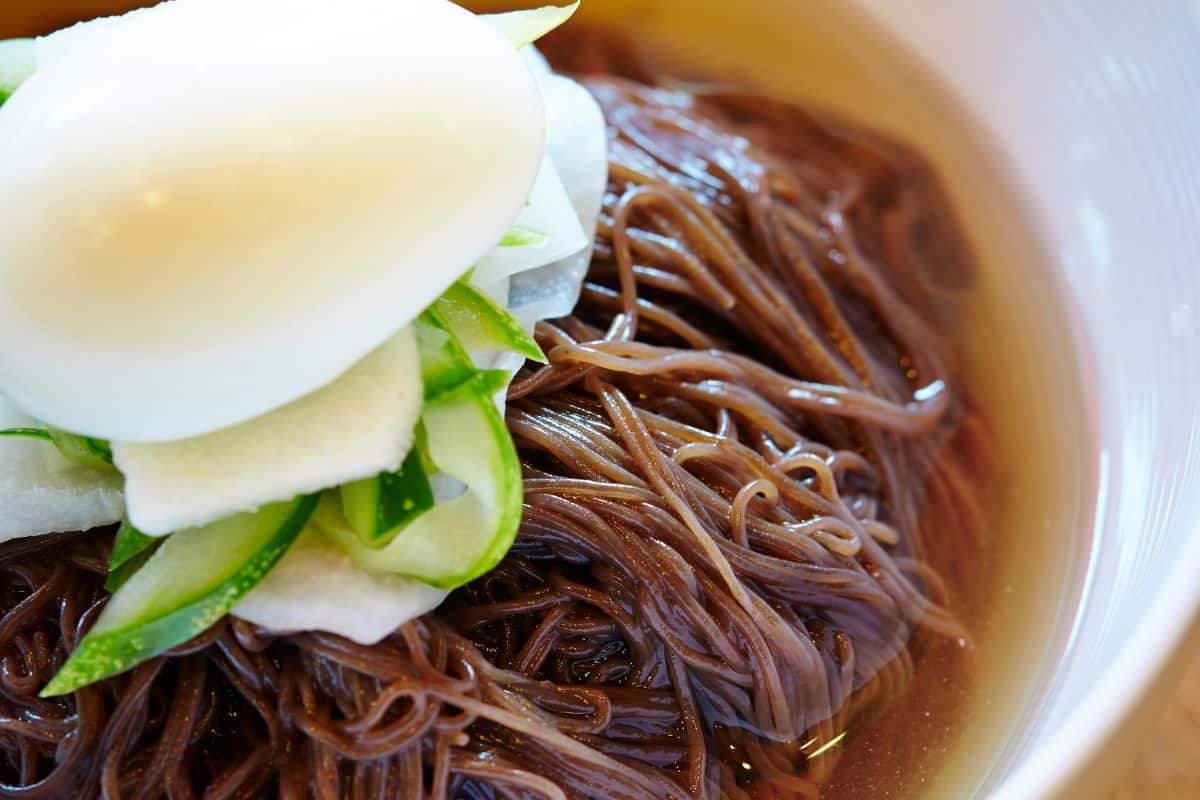
Memil Naengmyeon
A must-try in Jeonju during the hot Korean summer is memil naengmyeon, or chilled buckwheat noodles. Unlike regular wheat noodles, buckwheat noodles have a nuttier taste and are healthier, packed with protein and fiber, while the magic of memil naengmyeon is in its cold broth, a tasty mix of salty and sweet from soy sauce stock.
The noodles are then topped with seaweed, a boiled egg, and fresh cucumber slices. This combo not only fills you up but also cools you down, perfect after exploring Jeonju's sunny streets, similar to kalguksu.
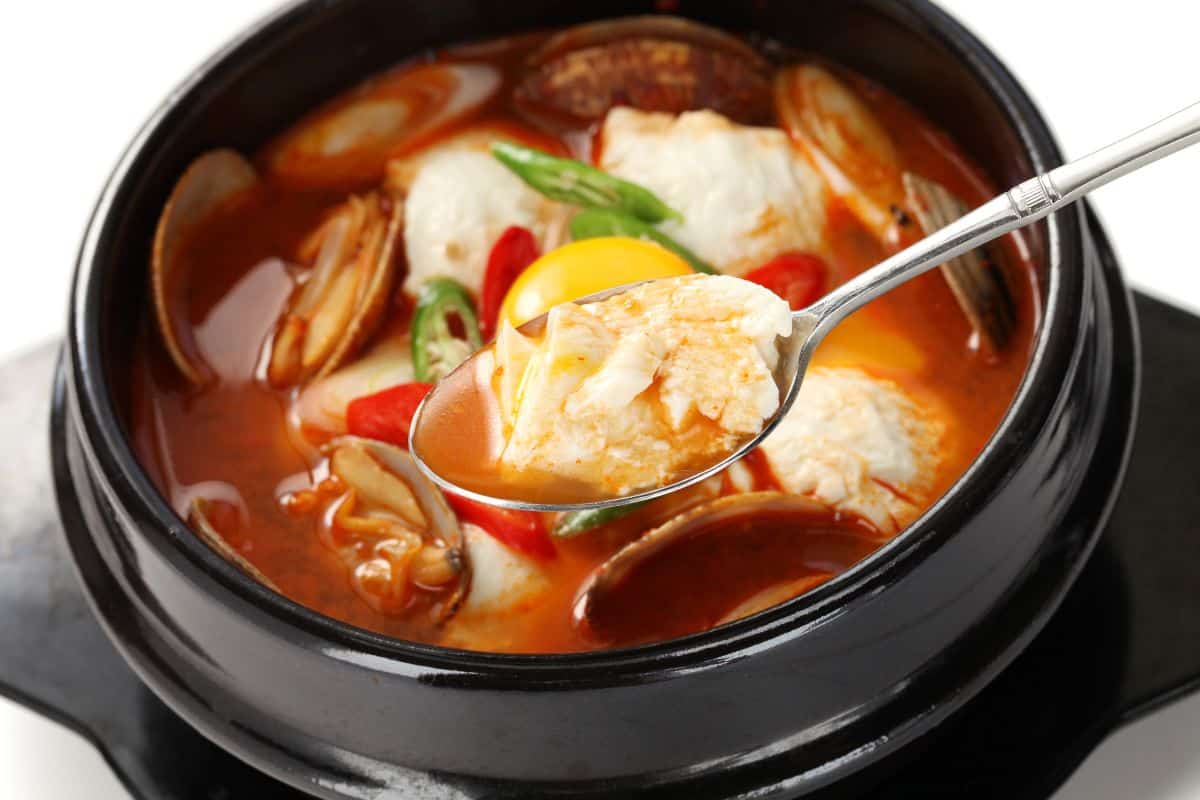
Sundubu Jjigae
For those heading just outside Jeonju to Wanju, a tasty treat awaits: sundubu jjigae, or soft tofu stew. While popular across South Korea, the nearby city of Wanju is famous for its delicious tofu (the secret is the fresh, local tofu that makes the stew creamy). Combined with a spicy red pepper broth, it creates a warm, flavorful meal that's also rich in protein.
Visitors come to Wanju not just for the stew but for a true taste of the North Jeolla region's food culture. The stew, typically served with kimchi, is hearty and satisfying. Whether a food lover or just curious, a trip to Wanju for sundubu jjigae is a must - the town's charm and tasty dishes perfectly complement Jeonju's food scene.
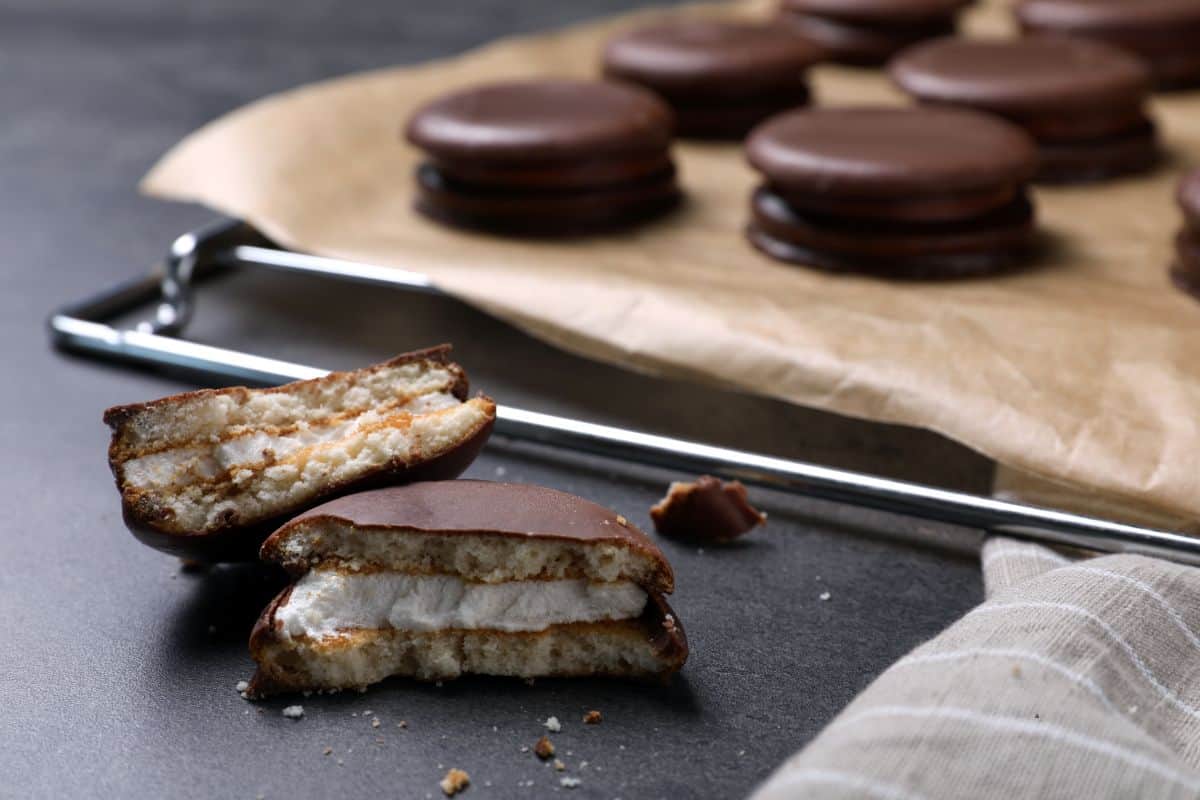
Jeonju Chocopies
When planning your trip to Jeonju, don’t miss out on trying the city's famous choco pies – a beloved treat in South Korea. While you can find choco pies in most supermarkets, Jeonju's homemade version is known for being one of the best.
Created in 1951, Jeonju choco pies usually feature a fluffy marshmallow filling, sometimes with a bit of jam, between two soft sponge cakes, offering a perfect combination of sweetness and texture. To taste Jeonju’s renowned choco pies, visit the local bakeries, especially around Jeonju Hanok Village. My favorite spots include Poongnyeon Bakery, PNB, and the Jeonju Choco Pie Shop.
Each bakery has its own twist on choco pie, so you're sure to find one you love. Enjoying a Jeonju choco pie is more than just a snack— it’s a tasty experience highlighting the city’s rich food culture.
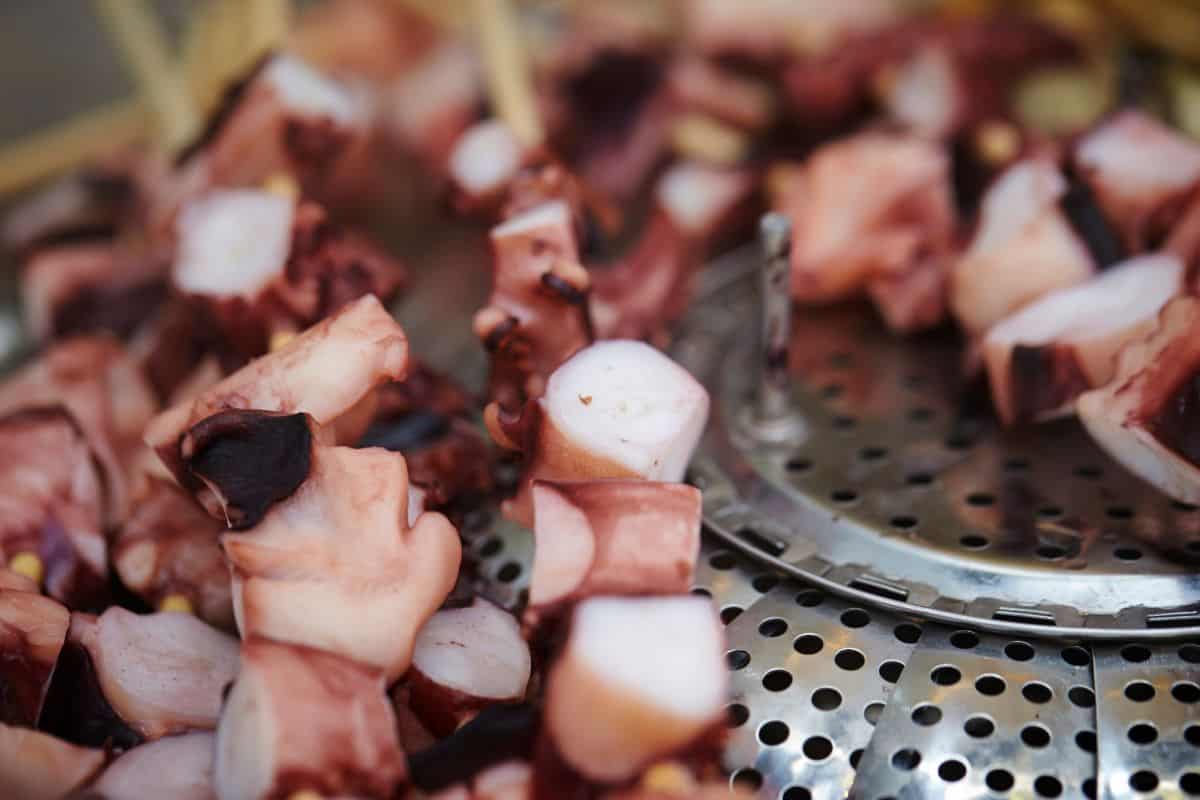
Munkkochi
When walking through Jeonju Hanok Village or staying in a hanok in Jeonju, don’t miss munkkochi— the city’s fun take on the street food skewer. The name mixes “muneo” (octopus) and “kkochi” (skewer), and well, it's pretty self-explanatory.
You’ll find many vendors grilling these octopus skewers, coating them with teriyaki sauce, mayonnaise, and cheese. The result? A savory, slightly messy, but irresistible snack that captures Jeonju’s food culture.
If octopus isn’t for you, Jeonju also offers other skewered treats like grilled chicken, cheese, rice cake, and sausage. Each skewer comes with your choice of sauce, from mild to extra spicy, letting you pick your perfect flavor. Munkkochi and its variations are the ideal handheld snacks to enjoy while exploring the charming alleys and traditional homes of Jeonju Hanok Village.
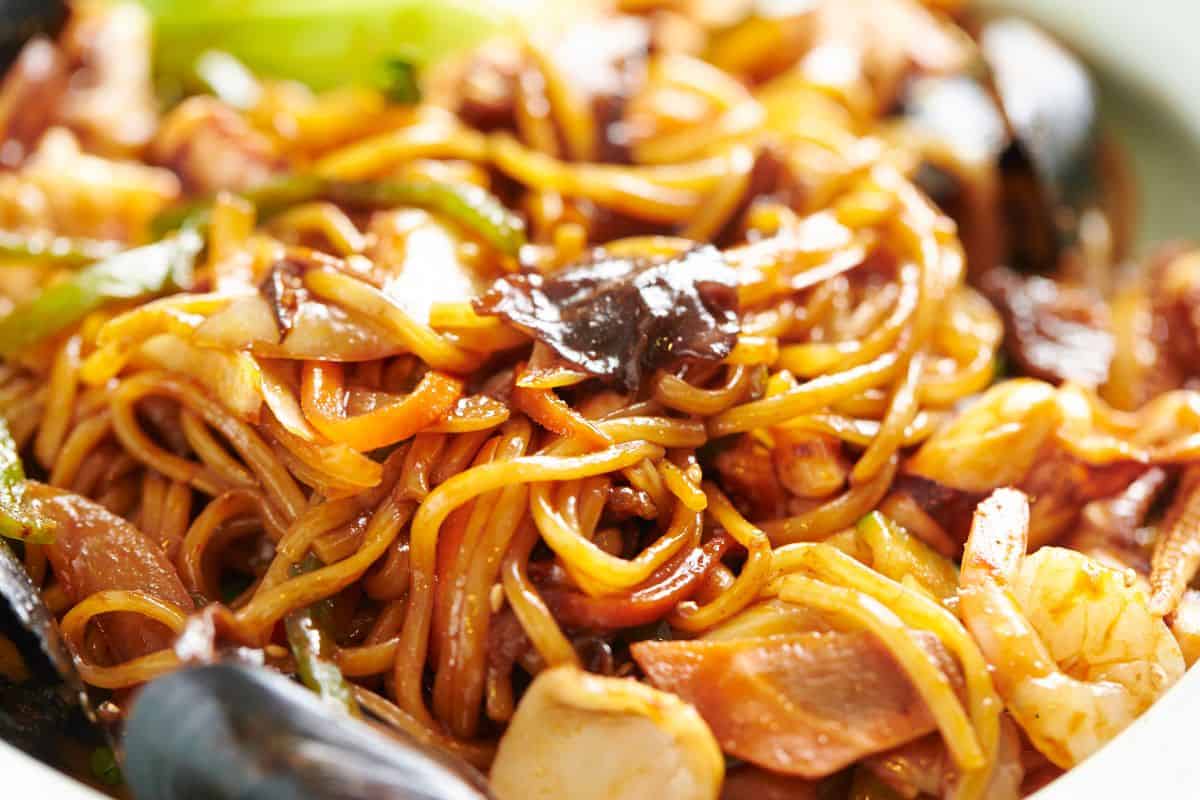
Muljjajang
For a unique culinary experience in Jeonju, try muljjajang, or seafood noodles, a dish with roots in the 1950s. Created as a special customer request for an alternative to black bean noodles, muljjajang features a vibrant, thick red sauce and fresh seafood atop freshly cut noodles - this twist on jjajangmyeon is a Jeonju specialty.
Visitors should not miss this rare dish, as it's hard to find outside Jeollabuk-do Province. Its rarity adds to its charm, making it must-try Korean noodles for all seafood lovers.
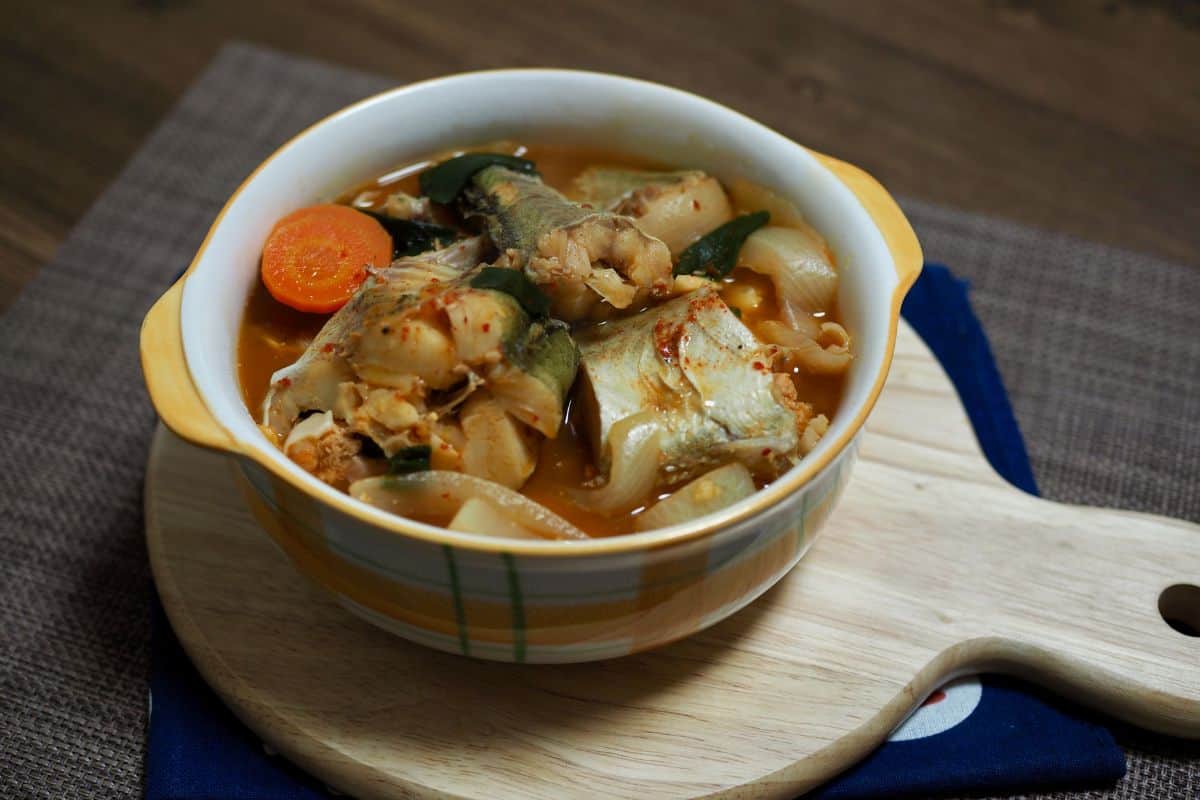
Omogaritang
One must-try dish in Jeonju is omogaritang, a spicy freshwater fish stew, the name for which comes from the black earthenware pots used to cook it. Along the Jeonjuchun River, you'll find 3 famous restaurants—Hanbyukjip, Hwasoonjip, and Namyangjip—that each offers a unique version of this stew.
Like many Korean meals, omogaritang is served with traditional Korean side dishes, including bean sprouts, dried seaweed, kimchi, savory pancakes, and steamed rice. The secret to its rich flavor is dried radish, which enhances the broth. This tasty fish stew is also believed to have revitalizing properties, perfect for recharging after a day of sightseeing.
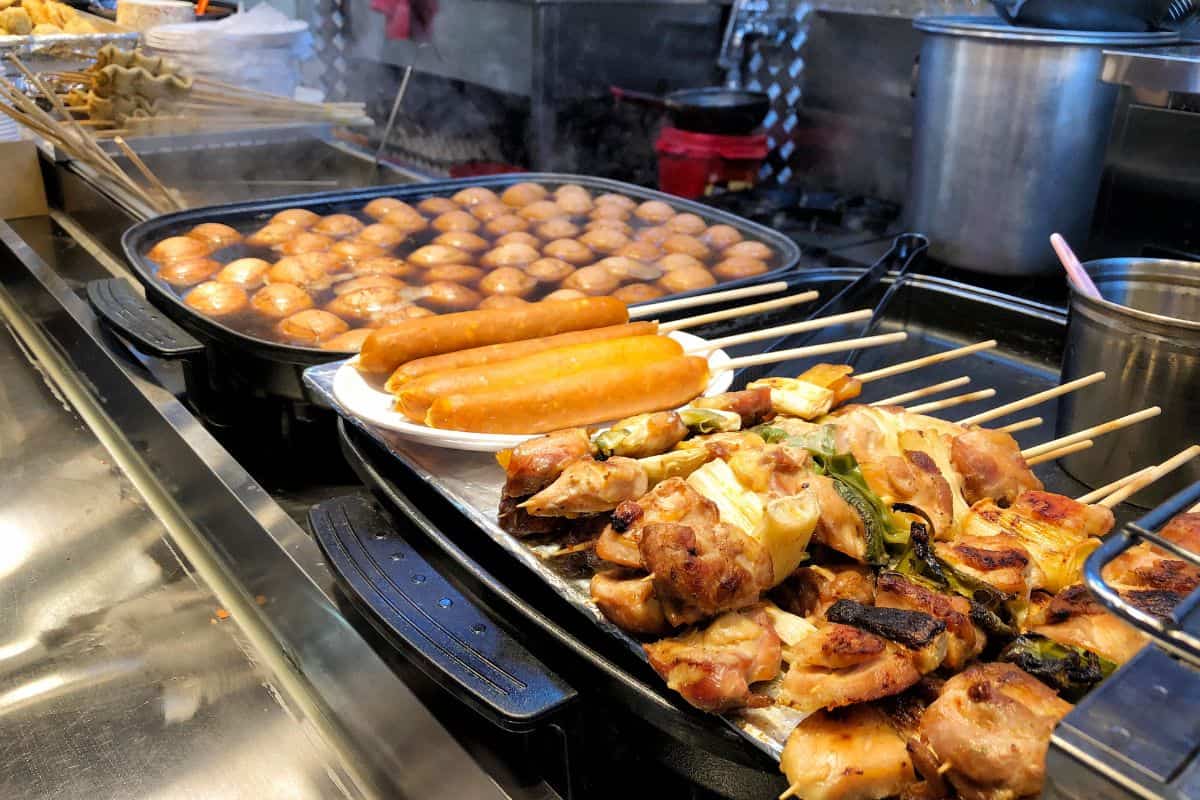
❓ Frequently Asked Questions
Jeonju offers a variety of traditional street foods, including mayak yukjeon (savory beef pancakes), munkkochi (octopus skewers), and other skewered treats like grilled chicken, cheese, rice cake, and sausage. Each skewer is customizable with a variety of sauces, but in Jeonju they like it spicy, so consider yourself warned.
During the hot summer months, memil naengmyeon, or chilled buckwheat noodles, is one of my favorite dishes. The cold broth with additions of seaweed, boiled egg, and fresh cucumber slices makes for a satisfying and refreshing meal after exploring Jeonju’s sunny streets.
Yes, muljjajang is a unique culinary dish from Jeonju, featuring a thick red sauce and fresh seafood atop freshly cut noodles. This dish, a twist on traditional jjajangmyeon, is rarely found outside of Jeollabuk-do Province, making it a must-try for visitors.
Jeonju choco pies are a beloved treat that you can find in local bakeries around Jeonju Hanok Village. Some of my favorite spots for choco pie sin Jeonju include Poongnyeon Bakery, PNB, and the Jeonju Choco Pie Shop. Each bakery offers its own unique twist, so consider trying a few places on your visit.


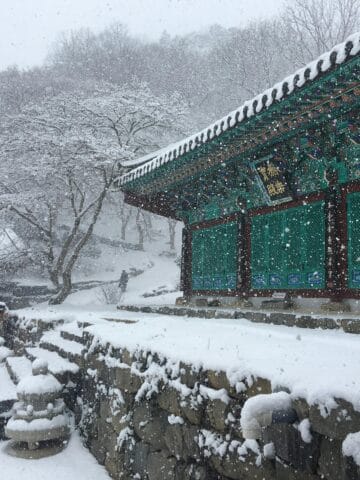
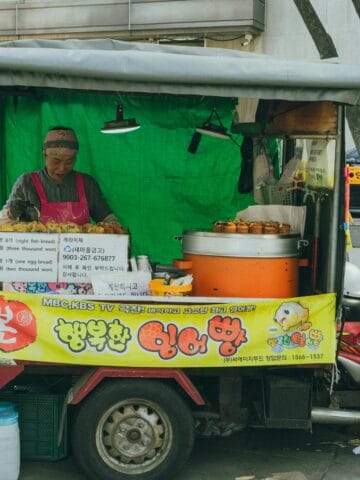
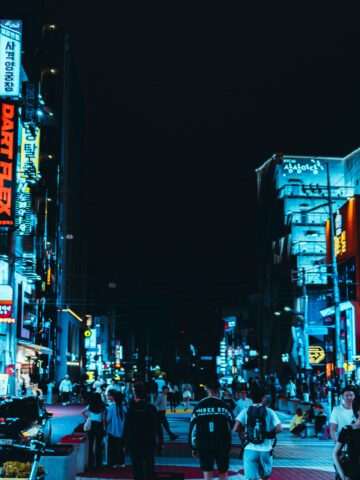
Comments
No Comments